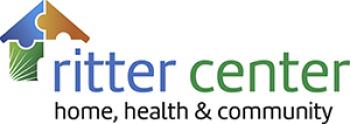In the News
News
Sep 05, 2021
Nonprofit Profile
Ritter Center – Housing is Healthcare
Sep 05, 2021
By The Marin Lawyer
When a person does not have sufficient food, or cannot find safety while sleeping on the streets or in a vehicle, what is the likelihood they can follow medical advice, or even remember their next appointment if they are fortunate enough to have access to sporadic healthcare? Living on the streets is traumatic and the resulting impact on mental and physical health creates a self-perpetuating cycle of homelessness.
At Ritter Center, they know that housing is literally medicine for their clients. The Center’s mission is to improve the health and well-being of people living in poverty in Marin by providing culturally sensitive, easily accessible, high-quality medical care and social services with the goal of preventing and resolving homelessness.
Ritter Center began 40 years ago when a small number of Marin residents came together to address the fact that some in the community were not getting their basic needs met. They quickly realized the need was far greater than accessing food, and that access to medical, behavioral and housing resources was critical as well. They also realized that only a high quality of service would foster human dignity and forge relationships with patients and clients in a way that would have lasting impact.
A Partnership Approach
Ritter Center’s highly trained team combines clinical best practices with a whole person care approach in order to solve each person’s health, food, and housing needs. They have developed industry-leading knowledge and built collaborative partnerships with county agencies, health partners, and like-minded organizations to help people overcome barriers to aid, resulting in complete support solutions that sustainably improve people’s lives.
“I can’t emphasize enough how important partnerships are in grappling with big, public health issues like COVID-19 and the same can be said about homelessness,” said Mark Shotwell, Ritter Center’s Executive Director. “No organization alone can solve these problems, but with partnerships, we can do massive things to better the world we live in.”
Applying this Approach to COVID-19 Vaccination
The pandemic has pushed many more local community members into poverty and unimaginable hardships. In April, Ritter Center partnered with the Marin County Department of Public Health to help deliver COVID-19 vaccine doses to underserved communities in Marin, using a vaccine allocation from the Health Resources and Services Administration. This collaborative effort targeted Marin’s most vulnerable residents, including those living in public or low-income housing, those experiencing homelessness, migratory or agricultural workers, those with limited English proficiency, and those receiving medical care from local community clinics, like Ritter Center. While success with vaccination has meant this large-scale collaboration is no longer underway, Ritter Center continues to schedule vaccinations weekly at its health clinic and through its new mobile health van. To date, it has distributed more than 40,000 COVID-19 vaccine doses.
Expanding Care
In July, Ritter Center launched its new mobile health van, made possible by Kaiser Permanente and the Marin Department of Health and Human Services, with the intention to bring primary medical care to unsheltered residents who lack access to medical providers. Utilizing medical services as an outreach tool can create linkages with other important services, such as shelter and housing and access to benefit programs. Ritter Center’s philosophy is to treat the whole person as a way to create the best possible outcomes for long-term, permanent housing and improved quality-of-life.
In 2013, Ritter Center became a Federally Qualified Health Center (FQHC) serving as a “Health Care for the Homeless” site. This enabled it to offer its services to all people, regardless of their ability to pay. The health center conducts all of Marin County’s General Relief physical and mental work readiness exams and coordinates healthcare for the county’s medical respite beds. In addition to their primary health care and case management services, Ritter Center also directly provides behavioral health services including therapy, psychopharmacological medicine management, and substance use disorder counselling.
"If I have a medical issue, I can go to Ritter. I can also get food, and access mental health care and holiday programs. There is no other place quite like Ritter Center—it provides all of this in one place," says Elizabeth, a Ritter Center client and mother to two daughters.
To learn more about Ritter Center, please visit rittercenter.org.













